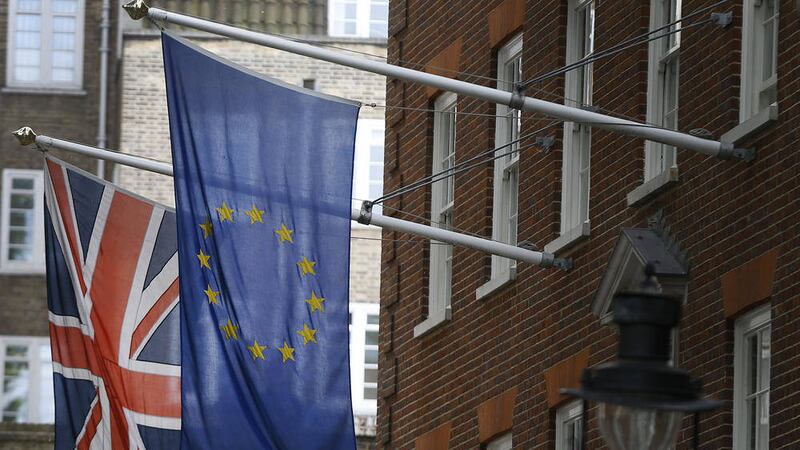ON June 5 1975 I walked into a polling station in Armagh and voted No to the referendum question, "Do you think the United Kingdom should stay in the European Community (Common Market)?"
I have never regretted the decision and I will vote No again in 2017 when we are given a referendum on the question, "Should the United Kingdom remain a member of the European Union?"
The reason I voted no in 1975 was because I believed that the inevitable consequence of remaining in the Common Market would be a push towards ever-closer political, constitutional, economic, social and foreign policy integration.
I agreed with Tony Benn: "A common market becomes a community, a community becomes a union, a union requires its own parliamentary and executive powers and those powers will take precedence over the powers of individual member states. A nation cannot be sovereign, cannot be individual within a Union of European States."
Key figures within the Yes campaign - like Harold Wilson, Edward Heath, Margaret Thatcher, along with business and banking leaders - insisted that there would not be a Union of European States because, as Thatcher said, "the British people would not tolerate a Union of European States or a European Union. The Conservative Party would not tolerate such a Union."
And yet here we are, 40 years down the line, and the Conservatives, Labour and Liberal Democrats will be asking those same British people to vote in favour of such a Union.
And what about those of us who will, as we did in 1975, argue against membership? We will be dismissed as jingoistic, xenophobic, little-Englanders. None of which I am, as it happens. Nor am I a swivel-eyed loon, a racist, a bigot or anti-foreigner. I have no difficulties whatsoever with my fellow Europeans and nor do I have any problem with arrangements and agreements which make it as easy as possible to trade and travel.
What concerns me now is what concerned me in 1975: namely, the broader consequences of continuing membership. We are in a political/constitutional relationship today that we were assured was not possible. How could it be possible, we were asked, when the shapers and lead voices of the European Community were against the very idea of an entity like the European Union? And yet here we are, being asked to endorse this impossible Union and, by endorsing it, being assumed to be giving the green light to the consolidation and expansion of that Union.
There are those at the very heart of the European Union who want to build a new superpower; a United States of Europe. They see a world that has changed since the end of the Cold War and the collapse of the Soviet Empire. They see a United States of America that has grown tired, overstretched and burdened with debt. They see the rise of China and India and a new order in the Middle East. They look into the near future and see change across Africa and Latin America. So they want the European Union, in the guise of a United States of Europe, to be one of the new powers in that new world; a world of maybe five superpowers rather than the one or two we have been used to since 1945.
The Yes campaign will deny all of this. As they did in 1975. As they do at every point when individual nations are pushed further into this constitutional/political mire. As they do when anyone dares to suggest that there are questions to be answered about the ultimate agenda and ambition of the European Union. And, along with the denials and obfuscations, they will warn of the dire economic consequences for any nation that would dare - yes dare - to take the unilateral, sovereign decision to detach itself from this Union.
What is the purpose of the European Union? That's a debate we don't seem to have. How many institutions, regulations and codicils are required to make it easy for European nations to agree on business, travel, trade, mutually beneficial cooperation and free movement of workers issues? Does it really take something like the present European Union to deliver it? Of course it doesn't. The European Union is about cooperation of an entirely different nature and purpose: and you can bet your bottom Euro that you'll never be given a vote on those issues.
I don't mind an honest debate about the European Union. I don't even mind being on the losing side of a referendum based on that debate. But I do mind being denied that debate, being lied to and being dismissed as some sort of anti-cooperation dinosaur for daring to raise these questions.







